Filter by

Crowdsourced health :how what you do on the Internet will improve medicine
Most of us have gone online to search for information about health. What are the symptoms of a migraine? How effective is this drug? Where can I find more resources for cancer patients? Could I have an STD? Am I fat? A Pew survey reports more than 80 percent of American internet users have logged on to ask questions like these. But what if the digital traces left by our searches could show doct…
- Edition
- -
- ISBN/ISSN
- 9780262334808
- Collation
- 1 online resource (144 pages)
- Series Title
- -
- Call Number
- -

Evil media
A philosophical manual of media power for the network age."Evil Media develops a philosophy of media power that extends the concept of media beyond its tried and trusted use in the games of meaning, symbolism, and truth. It addresses the gray zones in which media exist as corporate work systems, algorithms and data structures, twenty-first century self-improvement manuals, and pharmaceutical te…
- Edition
- -
- ISBN/ISSN
- 9780262305327
- Collation
- 1 online resource (viii, 235 pages)
- Series Title
- -
- Call Number
- -
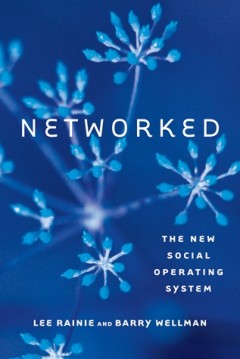
Networked: The new social operating system
Daily life is connected life, its rhythms driven by endless email pings and responses, the chimes and beeps of continually arriving text messages, tweets and retweets, Facebook updates, pictures and videos to post and discuss. Our perpetual connectedness gives us endless opportunities to be part of the give-and-take of networking. Some worry that this new environment makes us isolated and lo…
- Edition
- -
- ISBN/ISSN
- 9780262301190
- Collation
- 1 online resource (xiii, 358 pages) :illustrations
- Series Title
- -
- Call Number
- -
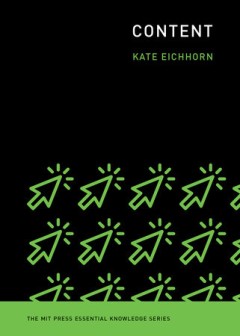
Content
"Eichhorn's EKS book will unpack the idea of content, whose emergence reflects a major shift in the way cultural products are produced and consumed, with far-reaching implications for society"--OCLC-licensed vendor bibliographic record.
- Edition
- -
- ISBN/ISSN
- 9780262368216
- Collation
- 1 online resource.
- Series Title
- -
- Call Number
- -
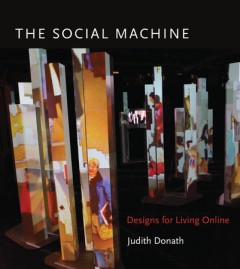
The social machine: Designs for living online
New ways to design spaces for online interaction—and how they will change society. Computers were first conceived as “thinking machines,” but in the twenty-first century they have become social machines, online places where people meet friends, play games, and collaborate on projects. In this book, Judith Donath argues persuasively that for social media to become truly sociable media, …
- Edition
- -
- ISBN/ISSN
- 9780262323482
- Collation
- 1 online resource (xiv, 418 pages) :color illustrations
- Series Title
- -
- Call Number
- -
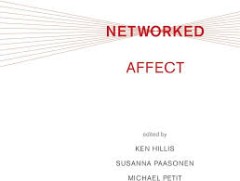
Networked affect
"Our encounters with websites, avatars, videos, mobile apps, discussion forums, GIFs, and nonhuman intelligent agents allow us to experience sensations of connectivity, interest, desire, and attachment -- as well as detachment, boredom, fear, and shame. Some affective online encounters may arouse complex, contradictory feelings that resist dualistic distinctions. In this book, leading scholars …
- Edition
- -
- ISBN/ISSN
- 9780262327350
- Collation
- 1 online resource (vii, 267 pages) :illustrations.
- Series Title
- -
- Call Number
- -
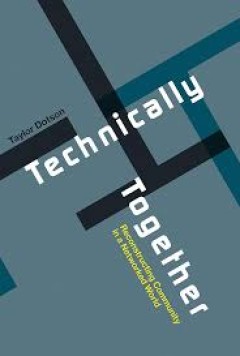
Technically Together: Reconstructing Community in a Networked World
Why we should not accept ""networked individualism"" as the inevitable future of community.OCLC-licensed vendor bibliographic record.
- Edition
- -
- ISBN/ISSN
- 9780262340861
- Collation
- 1 online resource
- Series Title
- -
- Call Number
- -
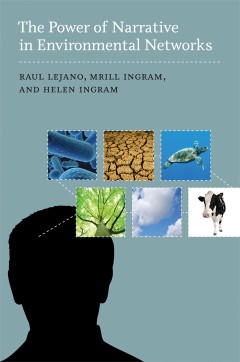
The Power of Narrative in Environmental Networks
For as long has humans have lived in communities, storytelling has bound people to each other and to their environments. In recent times, scholars have noted how social networks arise around issues of resource and ecological management. This book argues that stories, or narratives, play a key role in these networks - that environmental communities 'narrate themselves into existence'. The book p…
- Edition
- -
- ISBN/ISSN
- 9781461937128
- Collation
- 1 online resource (xiv, 225 pages) :illustrations, map.
- Series Title
- -
- Call Number
- -

Keep calm and log on :your handbook for surviving the digital revolution
"This book offers sensible advice for ordinary people about how to sustain a safe and satifsfying online life. This takes some know-how, given the risks we face each day. This book offers that knowledge and empowers us to shop, share, and connect with one another digitally while protecting ourselves from identity theft, Internet addiction, fake news, and data breaches. This is a chatty, convers…
- Edition
- -
- ISBN/ISSN
- 0262358298
- Collation
- 1 online resource.
- Series Title
- -
- Call Number
- -

Collaborative society
How networked technology enables the emergence of a new collaborative society. Humans are hard-wired for collaboration, and new technologies of communication act as a super-amplifier of our natural collaborative mindset. This volume in the MIT Press Essential Knowledge series examines the emergence of a new kind of social collaboration enabled by networked technologies. This new collaborative s…
- Edition
- -
- ISBN/ISSN
- 9780262356442
- Collation
- 1 online resource (256 pages).
- Series Title
- -
- Call Number
- -
 Computer Science, Information & General Works
Computer Science, Information & General Works  Philosophy & Psychology
Philosophy & Psychology  Religion
Religion  Social Sciences
Social Sciences  Language
Language  Pure Science
Pure Science  Applied Sciences
Applied Sciences  Art & Recreation
Art & Recreation  Literature
Literature  History & Geography
History & Geography